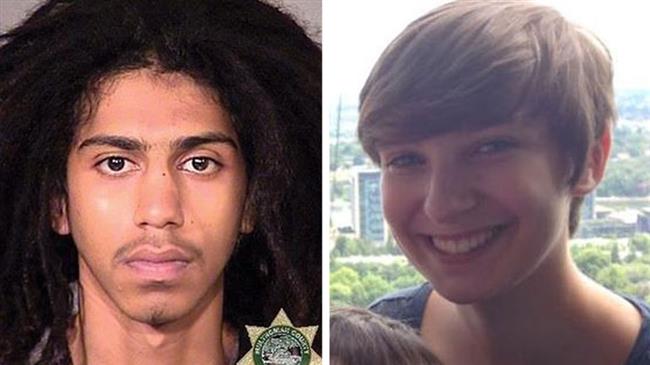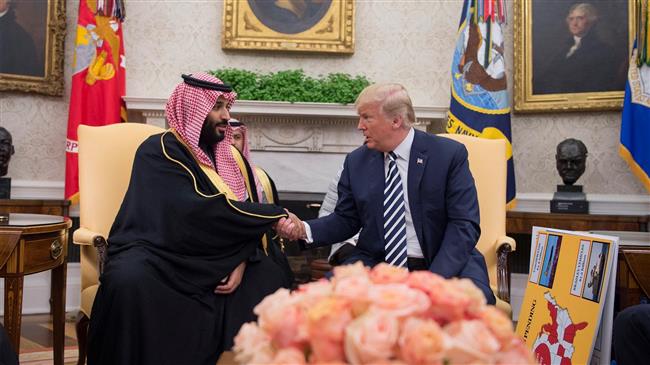International rights groups denounce Saudi decision to try jailed women's activists
International human rights groups have censured Saudi Arabia over its decision to put on trial women's rights activists detained in last year’s crackdown, after holding them for nearly a year without charge.
The state-run Saudi Press Agency (SPA) said on Friday that the ultra-conservative kingdom’s public prosecutor was preparing the trials of the detainees as it had concluded its investigation.
The prosecution office, however, did not specify the charges nor give a date for the court proceedings.
More than a dozen activists were arrested last May, and held on suspicion of harming the country’s interests and offering support to hostile elements abroad.
At the time, international rights groups reported the detention of prominent female activists among the detainees, who had previously campaigned for the right to drive and an end to the kingdom’s male guardianship system.
Some were later released, but activists have said several of the women were held in solitary confinement for months and faced torture and sexual harassment.
“The Saudi prosecution is bringing charges against the women's rights activists instead of releasing them unconditionally,” said Michael Page, deputy director in the Middle East and North Africa division at Human Rights Watch.
He added, “The Saudi authorities have done nothing to investigate serious allegations of torture.
“Now, it's the women's rights activists, not any torturers, who face criminal charges and trials.”
Moreover, Amnesty International described Friday's announcement as a “shocking sign of the kingdom's escalating crackdown on activists" and demanded "the immediate release of prisoners of conscience.”
Samah Hadid, the Amnesty International's Middle East campaigns director, said, “These women's rights activists should be released from detention for their peaceful activism not referred to trial. The Saudi Arabian authorities continue their signature repression.”
Among the jailed female rights activists are Aziza al-Yousef, a retired professor at Riyadh's King Saud University, and Loujain al-Hathloul, who was arrested and held for more than 70 days in custody back in 2014 after she attempted to drive from the neighboring United Arab Emirates (UAE) to Saudi Arabia.
Loujain was one of the activists who faced sexual harassment and torture during interrogation, according to her family and rights groups.
Following their arrest, regime-backed newspapers published front-page pictures of some of the activists with the word “traitor” stamped across them in red.
Saudi Arabia overturned the world's only ban on female motorists on June 24, 2018. The lifting of the prohibition followed a sweeping crackdown on prominent women's rights activists, who had staunchly advocated for the right to drive.
Saudi Arabia has lately stepped up politically-motivated arrests, prosecution and conviction of peaceful dissident writers and human rights campaigners.
Saudi officials have also intensified security measures in the Shia-populated Eastern Province.
Eastern Province has been the scene of peaceful demonstrations since February 2011. Protesters have been demanding reforms, freedom of expression, the release of political prisoners, and an end to economic and religious discrimination against the oil-rich region.
The protests have been met with a heavy-handed crackdown by the regime, with security forces increasing security measures across the province.
Over the past years, Riyadh has also redefined its anti-terrorism laws to target activism.
In January 2016, Saudi authorities executed Shia cleric Sheikh Nimr Baqir al-Nimr, who was an outspoken critic of the Riyadh regime. Nimr had been arrested in Qatif, Eastern Province, in 2012.
‘All wars have rules. All of those rules have been broken’ by Israel
VIDEO | Report flags India’s violation of rights of Rohingya detainees
Turkey's foreign minister meets Syria's de facto leader in Damascus
'Next to impossible' to rescue patients from Gaza's Kamal Adwan Hospital: Director
VIDEO | Vietnam current prosperity
Report blames gasoil exports for shortage at Iranian power plants
VIDEO | Hind Rajab Foundation names Israeli war criminals vacationing after Gaza genocide
VIDEO | Australians rally for Gaza ahead of Christmas festivities




















 This makes it easy to access the Press TV website
This makes it easy to access the Press TV website